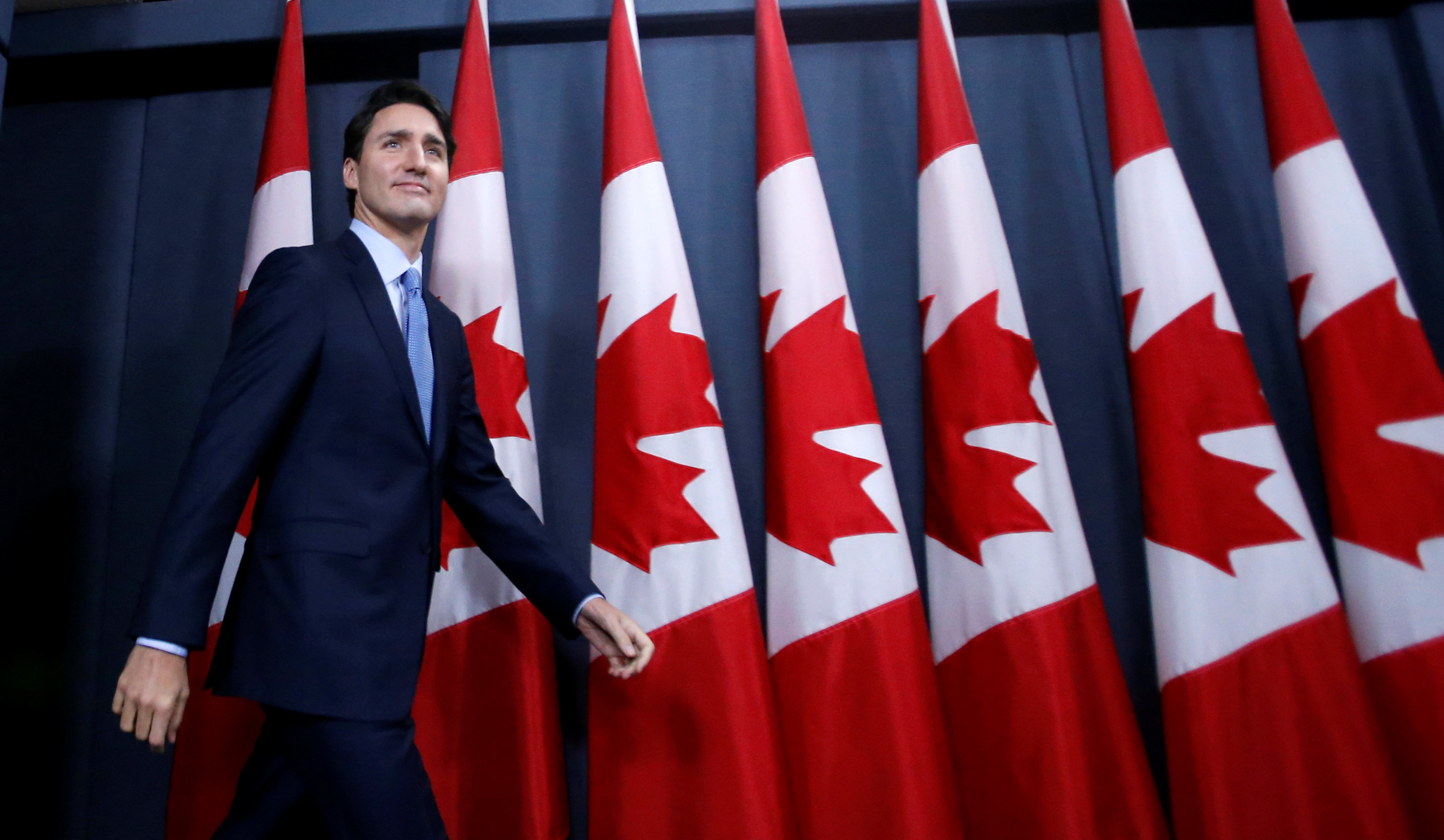Canada’s national Inuit group likes Trudeau’s approach to reconciliation

Canadian Prime Minister Justin Trudeau’s announcement that his government will create permanent bilateral policy structures for each of the three national Indigenous organizations comes as welcome news for Inuit, the president of Inuit Tapiriit Kanatami, Natan Obed, said Dec. 15 at a televised press conference.
Trudeau made the announcement following a meeting in Ottawa with the heads of ITK, the Métis National Council and the Assembly of First Nations, held on the first anniversary of the Truth and Reconciliation’s release of its final report.
“We are encouraged by the announcement today of distinction-based entities that would create partnerships between our rights holders and the Government of Canada,” Obed said.
In plain language, the new arrangement means Trudeau will meet with each Indigenous organization each year to work out policies and shared priorities on what to do.
At the same time, each Indigenous organization will meet at least twice a year with “key cabinet ministers,” to ensure different federal departments know what’s going on and can co-ordinate their work.
And that process includes each of the four regions of Inuit Nunangat, Trudeau said.
For Inuit, who comprise only about 4 or 5 percent of Canada’s national Indigenous population and who have long complained their issues are overlooked in favor of First Nations matters, this federal announcement appears to recognize their longstanding desire for Inuit-specific approaches from the federal government.
“With this announcement, we are one step closer to realizing our shared vision of a truly collaborative partnership between Inuit and the Government of Canada focused on improving the lives of Inuit,” Obed said in a news release.
This new structure would help bring together different federal departments—often accused of operating in silos, in isolation from each other—to work on the “complex challenges” facing Inuit, ITK said.
“This new structure will be the focal point for a renewed Inuit-to-Crown partnership. A unified approach is necessary to work effectively on priorities such as achieving social equity, reducing poverty, investing in infrastructure and education, and working towards reconciliation,” Obed said in the ITK release.
Trudeau also announced a $10 million contribution to the National Centre for Truth and Reconciliation at the University of Manitoba in Winnipeg.
That’s the institution that holds the largest collection of archival materials related to the history of residential schools, including oral histories, school administration records, photographs, plans and drawings, and many other historical materials.
“This contribution will help to ensure that the history and legacy of Canada’s residential school system is remembered,” Trudeau said.
And Trudeau said Ottawa will begin work on the creation of a National Council for Reconciliation, with the setting up of an interim board of directors.